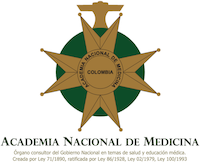RESULTADOS DEL MANEJO NUTRICIONAL EN UNA FAMILIA CON FENILCETONURIA, POSTERIOR AL DIAGNÓSTICO GENÉTICO: DISERTACIONES EN TORNO AL SEGUIMIENTO Y ADHERENCIA AL TRATAMIENTO.
Palabras clave:
Fenilcetonuria, Fenilalanina Hidroxilasa, Alteración Neurológica y Cognitiva, Genética, Diagnóstico Temprano, Nutrición, Manejo, Adherencia a Tratamiento, Phenylketonuria, phenylalanine hydroxylase, neurological and cognitive alterations, early diagnosisResumen
Introducción: Aunque ciertamente la Fenilcetonuria (PKU) no sea un desorden metabólico común en Colombia, médicos generales, pediatras y genetistas deben estar alerta de su presencia y, deben propender por un diagnóstico completo que permita iniciar un manejo nutricional adecuado temprano. De manera que no sólo es importante el diagnóstico, sino la asesoría genética apropiada, el manejo y seguimiento. Sólo de esta manera se logran minimizar las secuelas y en especial, el daño neurológico propio de esta alteración metabólica, dado que es una de las pocas patologías genéticas en la que es posible ofrecer algún tipo de manejo que evite daños devastadores y ofrezca así un mejor pronóstico. Es igualmente importante estar atentos a los procesos del sistema de salud colombiano, que impone trabas y demoras en los manejos y tratamientos de estas enfermedades poco frecuentes, pues son causa de baja adherencia, suspensión de tratamientos y empeoramiento clínico de nuestros pacientes, con deterioro irreversible muy negativo en estas familias afectadas vulnerables e indefensas.
Objetivo: En este trabajo se realizó seguimiento durante un año y medio de evolución bajo manejo nutricional a una familia colombiana con diagnóstico clínico, bioquímico y molecular de Fenilcetonuria (PKU).
Materiales y Métodos: A una familia colombiana con diagnóstico de Fenilcetonuria, con 4 individuos afectados, se le hizo el seguimiento clínico de su evolución durante un año y medio, mientras recibían el tratamiento consistente en el manejo nutricional adecuado para su enfermedad de base, la ingesta de preparados de fórmulas comerciales adecuadas y seguimiento de pruebas bioquímicas y de evolución clínica con o sin tratamiento.
Resultados: Se presentan los resultados de la evolución clínica bajo tratamiento con manejo nutricional adecuado durante un año de observación clínica y su evolución medio año después de haber suspendido el tratamiento y manejo. Se resalta la evolución con y sin el manejo médico recomendado.
Conclusiones: Se enfatiza la importancia de estar atentos a sospechar la enfermedad, del diagnóstico temprano y el manejo dietario adecuado que implique una verdadera prevención de secuelas. Así mismo se discute el manejo en los sistemas de salud del tratamiento de este tipo de enfermedades raras, la falta de mecanismos de adherencia al tratamiento, la ausencia de programas de seguimiento y los efectos deletéreos de suspender un manejo y tratamiento exitoso.
NUTRITIONAL MANAGEMENT RESULTS IN A FAMILY WITH PHENYLKETONURIA FOLLOWING GENETIC DIAGNOSIS: DISSERTATIONS AROUND MONITORING AND ADHERENCE TO TREATMENT
ABSTRACT
Introduction: Phenylketonuria (PKU) is not a common metabolic disorder in Colombia indeed, but still general practitioners, pediatricians and geneticists should be aware of its presence and should promote a comprehensive diagnosis, allowing a proper early nutritional management. So not only diagnosing it is important, but the appropriate genetic counseling, management and monitoring as well. Accomplishing all these, we will minimize sequelae and especially neurological damage, since it is one of the few genetic diseases in which it is possible to offer some kind of management that avoid devastating damage, thus leading to a better prognosis. It is equally important to follow carefully all processes of the Colombian Health System, which imposes barriers and delays in handling rare diseases, because these barriers and delays are the cause of low adhesion, suspension of treatments and clinical worsening of patients, with very negative irreversible deterioration in affected, vulnerable and helpless patients and their families.
Objective: To perform a follow-up throughout a year and a half of evolution under nu- tritional management, to a Colombian family with clinical, biochemical and molecular diagnosis of phenylketonuria (PKU).
Materials and methods: Treatment consisting of nutritional mana- gement suitable for underlying disease, intake of adequate commercial formulas and monitoring of biochemical tests and clinical evolution were given to 4 affected individuals of a Colombian family diagnosed with phenylketonuria, followed-up for a year and a half.
Results: We present the results of clinical evolution under treatment with suitable nutritional management for a year of clinical observation and its evolution for half a year after treatment withdrawal. Evolution with and without medical management is highlighted.
Conclusions: We emphasize the importance of being aware of the disease, since early diagnosis and appropriate management involving diet gives a true prevention of sequelae. Likewise we discussed management of health system procedures for treatment of rare diseases, to avoid lack of adherence, absence of monitoring programs and deleterious effects of suspensión of a successful treatment.
Biografía del autor/a
Marta L. Tamayo F., Instituto de Genética Humana
Johanna Acosta G., Universidad del Bosque
Nancy Gelvez M., Instituto de Genética Humana
Greizy López L., Instituto de Genética Humana
Juan Carlos Prieto R., Instituto de Genética Humana
Derly Castro R., Instituto de Genética Humana
Martha Bermúdez, Instituto de Genética Humana
Referencias bibliográficas
Vilarinho Laura, Queirós Ana, Leandro Paula, Tava- res de Almeida Isabel, Rivera Isabel. Fenilcetonúria Revisitada. ARQUIVES DE MEDICINA, 2006; 20(5- 6):161-72. ArquiMed, 2006.
Santos LL, Fonseca CG, Starling AL, Januário JN, Aguiar MJ, Peixoto MG, Carvalho MR. Variations in genotype-phenotype correlations in phenylketonuria patients. Genet. Mol. Res., 2010; 9 (1): 1-8.
Scriver C, The PAH Gene, Phenylketonuria, and a Paradigm Shift, HUMAN MUTATION 28(9): 831-45, 2007
Hagedorn T, van Berkel P, Hammerschmidt G, Lhotáková M, Pasqual Saludes R, Requirements for a minimum standard of care for phenylketonu- ria: the patients’ perspective, Orphanet Journal of Rare Diseases 2013, 8:191 - http://www.ojrd.com/ content/8/1/191
Cazzorla C, Cegolon L, Burlina A, Celato A, Massa P, Quality of Life (QoL) assessment in a cohort of patients with Phenylketonuria. BMC Public Health 2014, 14:1243
Scriver CR, Kaufman S, Eisensmith RC, Woo SLC. The hyperphenylalaninemias. In: Scriver CR, Beaudet AL, Sly WS, Valle D (eds). The metabolic and mo- lecular bases of inherited disease. 8th Ed McGraw Hill, New York 2001; pp 1667-1724.
Walter John H., Lee Philip J., Burgard Peter. Hyper- phenylalaninaemia. In: Fernandes John, Saudubray Jean-Marie, van den Berghe Georges, Walter John H. (eds). Inborn Metabolic Diseases, Diagnosis and Treatment. 4th Ed Springer, 2006; pp 226-31.
De Groot MJ, Hoeksma M, Blau N, Reijngoud DJ, van Spronsen FJ. Pathogenesis of cognitive dysfunction in phenylketonuria: Review of hypotheses. Mol Genet Metab. 2010; 99 Suppl 1:S86-9.
Scriver CR, Prevost L, Hurtubise M, Konecki D, Dobrowolski SF. Phenylalanine Hydroxylase Locus Knowledgebase. 2002 [updated 2002; cited 2014]; Disponible en: http://www.pahdb.mcgill.ca/cgi-bin/ pahdb/mutation_statistics-1.cgi
Desviat LR, Pérez B, De Lucca M, Cornejo V, Schmidt B, Ugarte M. Evidence in Latin America of Recurren- ce of V388M, a Phenylketonuria Mutation with High In Vitro Residual Activity. Am J Hum Genet. 1995; Aug;57(2):337-42.
Santos LL, Magalhães Mde C, Reis Ade O, Starling AL, Januário JN, Fonseca CG, Aguiar MJ, Carvalho MR. Frequencies of phenylalanine hydroxylase mutations I65T, R252W, R261Q, R261X, IVS10nt11, V388M, R408W, Y414C, and IVS12nt1 in Minas Gerais, Brazil. Genet Mol Res. 2006; Mar 31;5(1):16-23.
Acosta AX, Silva WA Jr, Carvalho TM, Zago MA. Ten Novel Mutations in the Phenylalanine Hydroxylase Gene (PAH) Observed in Brazilian Patients With Phenylketonuria. Hum Mutat. 2001; 17(1):77.
Langenbeck U, Burgard P, Wendel U, Lindner M, Zschocke J; German Collaborative Study on Phen- ylketonuria (PKU) / Hyperphenylalaninemia (HPA). Metabolic phenotypes of phenylketonuria. Kinetic and molecular evaluation of the Blaskovics protein loading test. J Inherit Metab Dis. 2009; 32:506–13.
Viau KS, Wengreen HJ, Ernst SL, Cantor NL, Furtado LV, Longo N. Correlation of age-specific phenyla- lanine levels with intellectual outcome in patients with phenylketonuria. J Inherit Metab Dis. 2011; Aug;34(4):963-71.
Sarkissian C. N. & Ga´mez A. & Scriver C. R., What we know that could influence future treatment of phenylketonuria, J Inherit Metab Dis. 2009; 32:3–9.
Van Spronsen FJ. & Hoeksma Marieke & Dirk-Jan Reijngoud, Brain dysfunction in phenylketonuria: Is phenylalanine toxicity the only possible cause? J Inherit Metab Dis. 2009; 32:46–51.
Bosch AM, Burlina A, Cunningham A, Bettiol E, Moreau-Stucker F, Koledova E, Benmedjahed K, Regnault A. Assessment of the impact of phenylke- tonuria and its treatment on quality of life of patients and parents from seven European countries. Orpha- net J Rare Dis. 2015 Jun 18;10:80. doi: 10.1186/ s13023-015-0294-x
Regnault A, Burlina A, Cunningham A, Bettiol E, Moreau-Stucker F, Benmedjahed K, Bosch AM. Development and psychometric validation of measu- res to assess the impact of phenylketonuria and its dietary treatment on patients’ and parents’ quality of life: the phenylketonuria – quality of life (PKU-QOL) questionnaires. Orphanet J Rare Dis. 2015; 10: 59. doi: 10.1186/s13023-015-0261-6.
Van der Vaart T, Overwater IE, Oostenbrink R, Moll HA, Elgersma Y. Treatment of Cognitive Deficits in Genetic Disorders: A Systematic Review of Clinical Trials of Diet and Drug Treatments. JAMA Neu- rol. 2015;72(9):1052-1060. doi:10.1001/jamaneu- rol.2015.0443.
Cómo citar
Descargas
Publicado
Número
Sección
Licencia
Copyright
ANM de Colombia
Los autores deben declarar revisión, validación y aprobación para publicación del manuscrito, además de la cesión de los derechos patrimoniales de publicación, mediante un documento que debe ser enviado antes de la aparición del escrito. Puede solicitar el formato a través del correo revistamedicina@anmdecolombia.org.co o descargarlo directamente Documento Garantías y cesión de derechos.docx
Copyright
ANM de Colombia
Authors must state that they reviewed, validated and approved the manuscript's publication. Moreover, they must sign a model release that should be sent.
| Estadísticas de artículo | |
|---|---|
| Vistas de resúmenes | |
| Vistas de PDF | |
| Descargas de PDF | |
| Vistas de HTML | |
| Otras vistas | |



